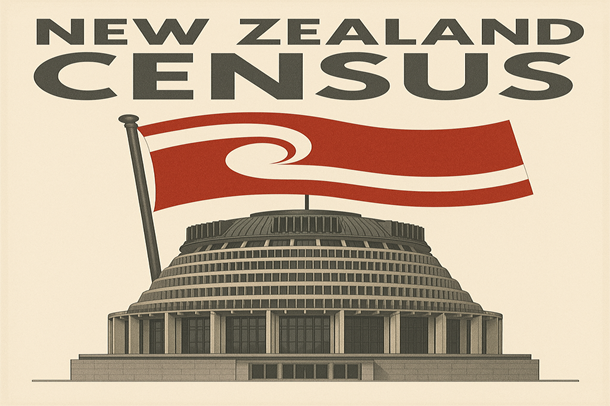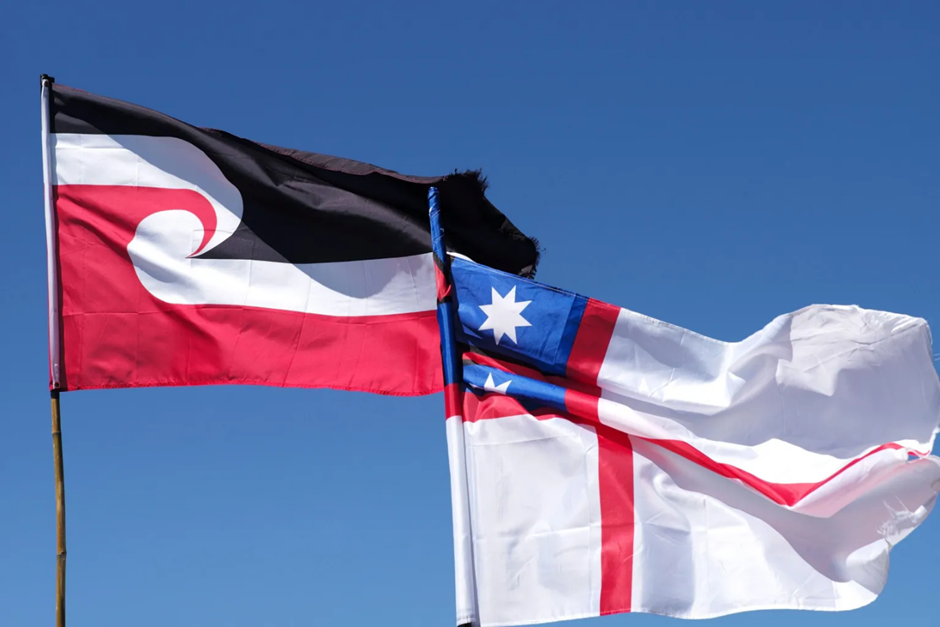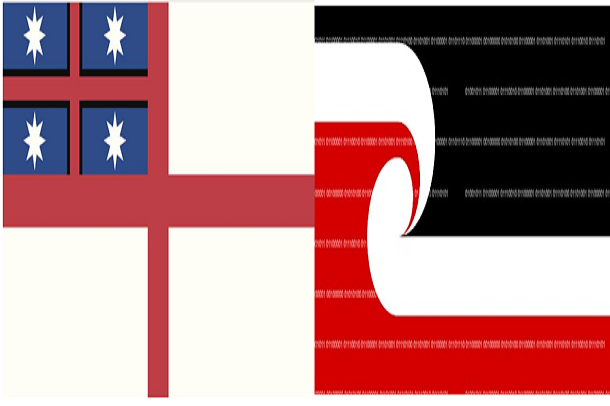The recent announcement by the government that the Census will cease in 2028 has been met with various reactions. Māori statisticians and academics with memberships and affiliations to Te Mana Raraunga and Iwi Leaders Data Group in particular are warning of issues for Māori and Iwi.
As a Māori technologist/governor with Data and AI, I argue that if we take a fresh look at this from a Te Ao Māori and Te Tiriti lens, then the cancellation of the census creates a myriad of new opportunities for all of Māori. This will then benefit all of New Zealand.
Background
Considering the census is not based on tikanga and is another colonial tool that has been used, both for and against Māori wellbeing. Cancelling the census is a new opportunity to reset this dilemma. It allows us to work towards a new solution that will benefit all New Zealanders.
Noting that the current regime has not worked for the past 174 years, especially the past decade. During this time, the status of Māori Data Sovereignty was realized. Moreover, in the past 4 years, mana Ōrite agreements with Iwi and StatsNZ and DIA have been costly. Therefore, a change of strategy could be beneficial to everyone.
Ka Pu te Ruha – Ka Hao te Rangatahi
When the old net is cast aside, the new net goes fishing.
The 2018 census had the poorest inputs in history, leading to the need to use other government data. The poor uptake was likely due to multiple social reasons, impacting everyone including: busy lifestyles, mistrust, lack of time, and fear. Nevertheless, it does show there is an issue with the old system, highlighting Minister Shane Reti’s evolutionary thinking as an opportunity to embrace current resources and new technologies.
New Technology
Firstly, we must consider that technology has increased exponentially (Moores Law), including data storage and analysis. Additionally, recent research indicates that approximately 90% of the world’s data has been generated within the past two years. According to IDC, the volume of data stored globally is doubling approximately every four years.
According to Riverly, as of 2024, the global data volume stands at 149 zettabytes. This reflects the increasing digitization of global activities, from consumer applications to industrial operations. It includes demand for real-time analytics, automation, and efficient data storage solutions. Moreover, it underscores the need for advanced storage solutions and robust data governance frameworks to manage this unprecedented scale of information.
Add to this, the recent introduction of Generative Artificial Intelligence has changed the way we analyze and use data. This must also be taken into consideration. We are amidst a generative Artificial Intelligence (r)evolution. This new technology is designed specifically to address mass amounts of data and to analyze and produce new data at speeds we’ve never seen before.
We have a Science and Technology minister, Judith Collins, who is promoting more implementation and use of AI. This is a perfect opportunity to create more beneficial results for government with less taxpayer funding. Thus, these benefits can be shared with Māori organizations, hapū, and Iwi.
Another issue is that all of government (local and central) create and store large amounts of data, but due to poor data governance practices relating to Māori, Disabled and other minority groups that form New Zealand society, including almost 100% of local government and about 60% of central government (research will be published later this year) government organisations often do not know what data they have.
The New Zealand Government know more about Māori than Māori know about themselves. Iwi Data Group, 2023.
For Māori, this equates to no reasonable mechanisms to share data with Māori organizations, hapū, and Iwi, nor with relevant government agencies. This is needed to better reflect Māori needs that the census attempts to achieve. Regardless of a census or not, there are massive data governance issues that have not been addressed in the past. Ceasing the Census could be the change required for a vision and resource reset.
Te Ao Māori
Prior to colonization, Māori society was made up of hapū (clans) with a detailed hierarchy of leadership, property boundaries, and rights allocated to each family/social class and individuals. The Hapū did not need a census as it knew its own people. These included those of their kinship clans who made up the larger group, having a direct ancestral connection to an ancestor. This is how we typically have iwi names now. This is sovereignty, and it has eroded over time due to colonization and the loss of tikanga.
Before New Zealand had its first census in 1851, Ngāi Tahu Iwi in the South Island recognized the impacts of colonization, urbanization, and the breakdown of hapū knowledge of their people. As a result, in 1848 Ngāi Tahu conducted its own census. Each person of Ngāi Tahu descent was verified as being Ngāi Tahu. Importantly, they also recorded their hapū and other genealogical data. Today, this results in one of only two public lists of hapū names about Ngāi Tahu.
That same data is still used today to recognize people who can legitimately claim membership (whakapapa) to the tribe. That tribe is now worth over 1.5 billion dollars with a myriad of benefits to its approximate 85,000 members. If a person registering cannot show a direct connection to an ancestor in the 1848 census, they cannot register with the tribe.
As a result of colonization and the Ngāi Tahu treaty settlement, the original hapū and two other tribes were largely assimilated into Ngāi Tahu (Ngāti Māmoe and Waitaha). They were grouped into 18 tribal councils (rūnanga) who assumed the traditional roles of the 140-plus hapū of Ngāi Tahu.
Each of these rūnanga is now collecting data about their members. This reflects the traditional societal hierarchy where the hapū had rangatiratanga (authority) over their members. Also, many Iwi authorities have their own health, financial, education, social arms, etc. They collect massive amounts of data about their members.
Had Ngāi Tahu not completed their own census in 1848, we can only speculate on the issues the tribe would have with registrations and historical accounts of hapū and land/resource disputes. I speculate that rūnanga may not have been able to be created, and the Ngāi Tahu claim may have had a very different outcome.
Today, Ngāi Tahu, like many other Iwi, holds masses of digital data on each of their members. Ngāi Tahu is not unique. Many Iwi authorities have the infrastructure and resources to accumulate and build data on their own members. Others are now building that resource.
We also know that each local and central government organization has masses of data on all New Zealanders. Many Iwi would like more data about their members. They often engage with government groups to access this data. However, due to privacy laws and poor data governance practices that do not recognize Māori, acknowledging, accessing, and sharing Māori data is often not possible.
Te Tiriti o Waitangi
Te Tiriti o Waitangi is perhaps more widely acknowledged and spoken about recently than it has been for generations. This is due to the current political environment.
The support to oppose the Treaty Principals Bill saw the largest mass protest in New Zealand’s history. More than 100,000 people marched on parliament. Over 300,000 submissions were received in relation to the Treaty Principles Bill. Notably, 90% of these were against the proposed changes.
Now, we need to consider Te Tiriti o Waitangi and the end of the census.
- Article I (kawanatanga), Māori gave the British’, the right of governance.
- Article II (rangatiratanga) The Queen promises to uphold the authority that tribes had always had over their lands and taonga.
- Article III (equality and equity. the Queen agrees to give Māori the same rights and duties of citizenship as the people of England.
These articles have been summarised into three principles: “partnership, participation, and protection”
Article I and III give the government social license to use our data as it does with all New Zealand citizens. Article II gives Māori the right to Māori Data Governance, partnerships, and participation. It ensures our protection via outcomes of data analysis.
If all government agencies recognize Te Tiriti and implement the three principles by working with Māori organizations, hapū, and Iwi, then free-flowing data-sharing agreements could be created. Consequently, this would benefit Māori and better direct taxpayer funding where it is needed most, further negating the need for an expensive and intrusive census.
Iwi, hapū, and Māori organizations have been trying to reclaim rangatiratanga of the health/wealth status data off their members. They also wish to reclaim data about the environment and its resources. In some cases, efforts have been ongoing for decades, with several of the largest Iwi not given access to data.
Data and Statistics Act 2022
The Data and Statistics Act 2022 has an obligation for StatsNZ to consider Te Tiriti. This legislation is also part of the coalition government’s plans to review the Treaty sections and possibly remove them.
This could put the Mana Ōrite agreement into question about being valid and a good use of tax payer money. Despite the Mana Ōrite agreement and the legislation including Te Tiriti statements, it is easily argued that the Census in its current state has breached Te Tiriti by ignoring Article II and making it illegal for Māori to not surrender their taonga (data) to the Crown.
Stats NZ surveys are a request under section 23 of the Data and Statistics Act 2022. Legally anyone who is asked to complete the survey has to answer all mandatory questions before the end of the collection period. Failing to answer the questions is an offence under section 76 of the Act and a conviction could lead to a fine of up to $2000 for an individual.
While StatsNZ states, “Generally, we seek to prosecute only a small number of people – between 30 and 60 people – for refusing to take part in the census,” there is no data based on ethnicity of those prosecuted. However, we can speculate that with no census, Māori communities will have one less barrier to engaging with government, leading to less opportunity for bias and racism.
Surveillance
Māori statisticians have been using the following phrase in their media releases and engagements recently regarding the Census and Facial Recognition Technology (FRT): “Māori are over surveilled.” If this is correct and no one else is, then this would ensure massive amounts of data that can be analyzed and used to address bias data and research. It can also create benefits in place of the census.
The reality is, every single person in the world, and New Zealand is no different, are increasingly having personal data collected about them via social media, government (NZ and international), branding companies, loyalty cards, CCT, and a plethora of other means. Accepting that each individual has very little privacy is a reality.
Every individual is over-surveilled by governments, businesses, corporates, and others. From inception, the unborn child starts being surveilled till the time a person dies. Even then, the government still collects data about you and stores it for various periods of time.
Many Māori will be part of a family/community who avoid doing the census due to intergenerational mistrust of the government. Despite its penalties, there are consequences of prosecutions that can lead to a fine of up to $2,000.
It is also common for intergenerational Māori communities and families to simply not admit that they are Māori in the Census and other questionnaires.
We also know that some Māori may feel more comfortable giving their hapū, Māori organization, or maybe Iwi personal data instead of the government. Likewise, some do not trust their iwi and hapū.
Solution
Good data governance practices need urgent implementation. This will allow both government and Māori to achieve better data with what already exists and with what government is creating daily. A primary issue is identifying Māori data. As simple as that sounds, most government organizations fail to do this.
Iwi and Māori partnerships will benefit all of New Zealand. Thus, making the need for a census viable.
International forecasts are that the role of statisticians will grow and change with AI implementation. This creates new opportunities for Māori when applying AI and human skills. This needs further consideration and implementation to ensure any bias data and missing data can be resolved.
Implementing and adopting emerging technologies such as generative AI is required. There’s a need to consider a New Zealand sovereign AI that can store, process, and analyze data in New Zealand. This approach minimizes the fear or risk of geo-political interferences, Internet outages, such as risks with Internet undersea cables being cut. It also helps avoid eftpos and other outages caused by global companies’ technical issues.





